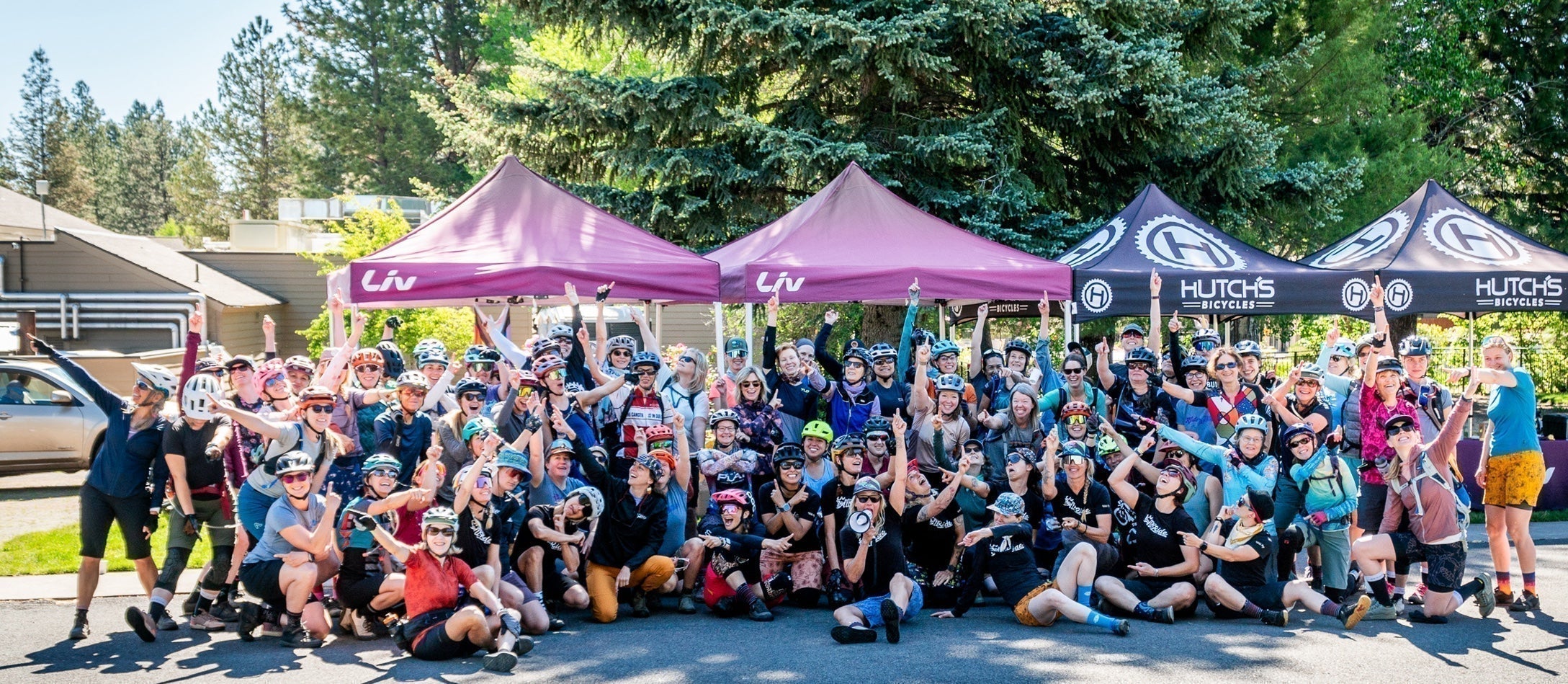
Baseball, Breakdowns, and Bikes as a Path to Female Empowerment: A Q&A with Lindsey Richter of Ladies AllRide.
We know a bike is more than just a bike—it’s a vehicle for confidence, connection, and joy. That’s why we’re so inspired by the work Ladies AllRide does. They’re not just teaching women how to ride—they’re creating space for us to show up fully, take risks, support each other, and have a heck of a lot of fun while we’re at it.
And no one embodies that ethos quite like Lindsey Richter. As the founder and head coach of Ladies AllRide, Lindsey has spent the last decade helping women across the country feel more powerful, capable, and confident on two wheels (and in life). Through thoughtful coaching, real talk about mental blocks and mental health, and an unwavering belief in every rider’s potential, she’s built a movement that’s as much about emotional breakthroughs as it is about perfecting your cornering.
We caught up with Lindsey to chat about what mountain biking can teach us about ourselves, why it’s okay (and necessary!) to cry at camp as an adult, and how a simple bike can be a catalyst for confidence, community, and joy.

Wild Rye: To start, can you tell us a bit about where you're from, and how you got to where you are today?
Lindsey Richter: I was born and raised in Portland, Oregon, where it rained all the time. But we were taught that there's no such thing as bad weather—just bad gear. You just went out in the rain. It wasn't even a question. It's just kind of what you did in Portland.
I was an athlete in high school, which really defined me – more than I was aware of at the time. Sports were where I found my people. All my friends were my teammates. And then I went to college and I didn't have a sport, and I think that that was a big eye opener for me.
WR: What was that transition like for you, going from high school to college without that structure or outlet?
LR: It was really tough. I had no idea how much sports anchored me until they were gone. I didn’t know it then, but I really struggled with my mental health. On top of that, I was on progesterone at the time because I wasn’t getting my period. Back in 1992—we weren’t talking about hormones and mental health like we do now. I was 17, heading off to college with a prescription and no monitoring, and my emotions were all over the place. So I definitely had a lot of mental health issues, depression, and manic behavior that I didn't understand.
Then I joined a sorority because that’s just what I thought people did, but it didn’t go well. I ended up getting kicked out my sophomore year. It's a whole story of why I got kicked out, but I think the underlying reason is because people didn’t understand what I was going through. They’d say things like, “you have nothing to be sad about,” and “we don't understand you” which just made me feel more isolated and ashamed.

How did you move forward from that experience?
I was at an all time low, so I fast-tracked through the rest of school. I studied abroad and graduated a semester early just to get out. I just didn't feel like I fit in. Then, in a completely unexpected twist, I moved to Australia and ran a professional baseball team for three years! That’s a whole other story, but yeah — I know, I’ve had a lot of lives.
Wait, you ran a baseball team in Australia? That’s amazing. Tell me more about that time in your life.
It was wild. I just really had no identity at that point. I was trying on different versions of myself. I wore jelly fillers in my bra and tons of makeup. I shaved my head. I went through this phase in my twenties of not knowing who I was and just kind of trying to find myself – as you do in your twenties.
Eventually, I ended up back in Portland and got into advertising and PR. I thought I’d made it. I was 24 and had an office with a door, which was a big deal back then! All my friends worked at Nike in cubicles, and I was like, “I have a door, I must be crushing it.” But then the .com bubble burst in 2001 and we all got laid off.
You’ve lived so many lives. How did you get from PR and baseball to mountain biking?
When I was doing PR one of my clients was Nike ACG– which was Nike's all conditioning gear. This was when Nike was just starting to get into snowboarding and action sports. I remember thinking when I would work on these radio ads, how do I become the people who are at the events? How do I become the people who work outside of the office, who aren't sitting in front of a computer all day? But, back then laptops weren't a thing, so you had to be at the office to get work done. So I would go to spin class during my lunch break to get out of the office for a bit, and spin class at lunch opened my eyes to wow, maybe I should try riding and racing bikes outside.
So where does Survivor tie in?
It was the most random thing. I didn’t even know about the show, but this guy in the office next to me—he also had a door—printed out the application and put it on my desk while I was cleaning out my desk after being laid off. I figured I had nothing to lose.
I had just started racing bikes, so when I made my Survivor audition tape I included footage of myself riding a mountain bike in some precarious clothing. I wanted them to see that I was a little crazy but also super competitive.

Do you still have that video?
It’s on VHS! If I could find it now, it would be hilarious. I was a kook. I was 24 years old and not afraid to be crazy, and that's one of the lines I used in that audition tape. “Now I've shown you how crazy I can be. Now let me show you how competitive I can be.” So I got on, and that was a whole whirlwind. We were in Kenya, literally fenced in at night because of wild animals. It was a pretty burly experience . But when the show aired, it was shocking. They showed the asshole side of me, and I was pretty much humiliated publicly. Chat rooms were the thing then, and people would rip me apart. Talk show hosts would drag me. It was humiliating. Thank god social media didn’t exist yet.
From the moment it aired, it was nonstop. They threw us into the gamut: press tours, David Letterman, Howard Stern — you name it. We got super famous, super fast. I went into another tail spin of depression and feeling publicly humiliated. But, I moved to LA anyway, because we were getting all these crazy opportunities to make money doing weird shit like signing autographs at Walmarts and Burger Kings for massive amounts of money. We rubbed elbows with celebrities at charity events, like the Ben Stiller dodge ball tournament, where it was the Survivor cast against the Friends cast. So, we would be chucking balls at Jennifer Aniston and these famous people. I ended up in an Eminem music video. It was awesome and wild, but it wasn’t me.
With LA came another dip, and a lot of “who am I”? I was 26-27 years old, just kind of flailing in that crazy town. I started to feel lost again, so I went back to my bike. Racing was my solace, so in 2002 I went to race the Sea Otter Classic.

Is that when your mountain bike career really took off?
Exactly. I went to Sea Otter, and the announcer introduced me as “Lindsey from Survivor.” People knew who I was, and in a weird way that kind of opened the door for me in the cycling world. Later that year I went to a NORBA national race in Big Bear, where I met a downhill racer. I had no idea what downhill racing even was, but I fell for him and the sport hard. We travelled the country for the rest of the summer going to all the races, and we got married a year later. That was the beginning of a whole new chapter. I was racing and started managing his career—PR, sponsorship, the works. We created the Fox All Ride Tour and then later the Santa Cruz Syndicate All Ride Tour. But I wanted to do more than just race.
I wanted to connect with people and represent women in the sport. I would sit in all of these meetings and do photoshoots with Fox and Santa Cruz, and Specialized and I would be the token woman at a lot of them. At the end of the meetings, when I would see how much money they had to spend on Red Bull Rampage and other events that were starting to get big, I would ask “what about a women's program”? There's nothing in this industry that invites women into the sport in a way that's not competitive. In order to find people to ride with, you have to go to a race. And most women don’t want to start with racing.
So after about 10 years of me begging, we developed the All Ride Academy Kids Race Team. We sponsored kids, traveled around the country with them, threw them in our van, got a budget, paid for them to race, and even started a free ride team. I learned a lot about sponsorship and how to turn a racer into an ambassador, and what it means to actually be a spokesperson for an industry that had, at this point, given me a whole new life.

What did that shift from racer to ambassador look like for you?
I noticed early on that most sponsorship dollars went to race teams – but those racers were behind pit walls, warming up or recovering. They were focused. They had to go race. They weren't out there mingling with the public. They weren't accessible.
I remember always thinking, wow, they put a lot of money into racers. But what are they doing out there to actually connect with people? How are these racers actually convincing people to buy products or get into the sport? So, when we created the All Ride Tour, we came up with all kinds of ways to engage people. We traveled the country in a branded van with a fleet of demo bikes and hosted rides through local bike shops – we brought the sport to the people. Over time, we realized the importance of posting up at shops, meeting folks face-to-face, and creating meaningful experiences – not just connecting them with us, but with the values we stand for.
Most of the time, I was the only woman on these rides – handing out Fox apparel, trying to connect with other women (often the wives of the men riding), and working to build a more inclusive experience. I was learning how to turn racing into storytelling, and storytelling into brand building. I got to witness firsthand how powerful that connection could be.
You were building a bridge between the brand and the people.
Exactly. Biking became about more than just going fast – it was about making people feel something. That’s the difference between a racer and an ambassador. A racer proves the product works; an ambassador makes people want to try it.

What was the reaction from the sponsor and brand side? Were people open to that kind of idea? Did they see the value in building community in those ways?
It was… complicated. In the early days, there just weren’t many women working at these companies, so I was usually pitching my ideas to dudes who ran race programs – many of whom were ex-racers themselves. Their hearts were set on racing as the only real metric for success. I definitely got a lot of raised eyebrows and a lot of “no’s.”
But SRAM started to see the value in what I was doing, and then Liv Cycling came along. That was a turning point. Giant created a brand by women, for women, and they needed a platform to speak directly to that audience. I met the right people at the right time – just as I was finally confident enough to run my own program.
Eventually, more women started getting hired in the industry. When Elena Caldwell joined SRAM, she totally got it. She pushed SRAM to support us, and they became our second-biggest sponsor after Liv. Other companies followed. They saw that education-based programs, and emotionally honest storytelling, made the sport more approachable—and that approach brought in more women.
We started shifting the narrative: mountain biking doesn’t have to be extreme. You don’t have to be sending cliffs to belong in this sport. That became the foundation of what Ladies AllRide is about—accessibility, emotional empowerment, and building confidence from the ground up.

How has your transition from racing to coaching changed your personal relationship with mountain biking?
Honestly, it completely redefined it. When I stopped racing was when mountain biking started being fun again. Racing made it a job. Coaching brought the joy back. The bike became my metaphor for life, especially during my divorce. Whether I was crying into the rain on a solo ride or laughing with friends on the trail, the bike was always there. It became a tool for healing, for connection, for rediscovering myself.
People sometimes say, “Oh, mountain biking – that’s such an extreme sport.” But for me, it’s not just a sport. It’s a lifestyle. It’s a way to push boundaries, find community, and live authentically.
What’s a common misconception people have about mountain bike clinics? How do you challenge that?
The biggest one? People think, “I know how to ride a bike, I don’t need a clinic.” That was totally me. I started riding in the ‘90s with no instruction– just grit and instinct. I’d ride everything and just jump off the bike and run if something felt too sketchy. And it worked… until it didn’t.
When I finally got certified to coach I realized how many habits I’d built on fear and guesswork. Clinics aren’t just for beginners. Even riders who tackle black diamonds often don’t fully understand the how or why behind their technique. They’re surviving, not thriving.
I also started Ladies AllRide partly because of the dynamic I’d see between couples. A lot of women were being coached by their partners, and let’s be real – that rarely works. There’s just something different about learning from people who see and understand you. That’s the kind of space we try to create.

Your camps have this magical way of creating both personal and collective transformation. What do you think it is about mountain biking that unlocks that?
Mountain biking is the ultimate metaphor for life. You’re constantly navigating obstacles, adapting to change, and choosing how you want to show up when things get hard. And that’s exactly what we do at camp – we create a space where women feel seen, supported, and encouraged to confront their fears.
Some of these women have been told their whole lives that they’re not athletic, or that they’re “too old” or “too scared” to try something new. Then they show up, push themselves outside their comfort zones, and realize they’re capable of so much more than they thought. The emotions are real – there are tears, there’s laughter, there’s cheering. It’s all welcome. And I think that emotional release is part of what makes it stick.
You mentioned “doing the work” to address fear and mindset. That’s not something we always associate with a skills clinic. Can you talk a little more about what that means?
A lot of people think mountain biking is just about learning to brake or corner or drop – but so much of it is mental. Fear shows up fast when you’re rolling into something that feels big, and our reaction is often to shut down or believe the story in our head that says, “I can’t.” We work really hard to flip that script.
We meet each rider where they are and remind them that fear is part of the process. It doesn’t mean stop – it means breathe, check in, and make a choice from a place of awareness instead of panic. We also talk about how those same reactions show up in our lives: the self-doubt, the hesitation, the fear of judgment. This sport has so much potential to shift how we relate to those things.

That’s such a powerful reframe – fear as an invitation instead of a stop sign.
Exactly! And it’s not about forcing yourself to do the thing. It’s about understanding why you’re afraid, what your body is telling you, and how to build the skills and mindset to move through it when you’re ready. We’re not here to push anyone past their edge—we’re here to help them expand it safely and joyfully.
We love that Ladies AllRide camps go beyond bike skills. What else do riders take away from these experiences?
Confidence. Connection. And so much more than just mountain biking. Sure, we’re there to help riders become more technically proficient on the bike – but it’s also about using the bike as a tool to help women face fears, manage negative self-talk, and realize they’re capable of more than they thought. We want women to leave camp feeling empowered, connected to a new community, and stoked on who they are and what they can do – on and off the bike.
That kind of emotional transformation is powerful. How do you create that kind of supportive environment?
It starts with our team. All of our coaches are not only skilled riders and teachers, but they’re also incredibly compassionate and supportive humans. We focus on building a culture of encouragement – no pressure, no judgment. We’re here to celebrate the wins, however big or small. It’s okay to feel scared. It’s okay to walk a feature. What’s important is that each woman feels seen, heard, and supported in her unique process. That’s when the real magic happens.

It must feel pretty surreal sometimes – seeing this thing you’ve built out in the world, touching lives in such a meaningful way.
Totally. There are moments where I just stop, look around, and think, holy shit, we did this. Especially when women come up to me and say, “I want to coach for you,” or when we’re out doing a volunteer Divas ride for the local shop and someone rides by and says, “I took your camp last weekend!” or “I took your camp last year!” It brings it all full circle. It’s a reminder that what we’re doing is working – that we’re truly impacting people’s lives. I don’t take one second of this for granted. The lifestyle we’ve built, the community that surrounds us, the women we’ve helped empower – it’s all such a huge deal. I’m just incredibly grateful to be part of it.

We’re proud to support women like Lindsey Richter who are dedicated to building community and confidence through mountain biking. Her work with Ladies AllRide Camps shows how important learning new skills with support and encouragement can change not just how women ride – but how they see themselves. Whether you’re just starting out or looking to take your riding further, Lindsey’s story is a powerful reminder that growth comes from connection, persistence, and the humility to keep learning – no matter your skill level.
Learn more or sign up to attend a Ladies AllRide Camp here!
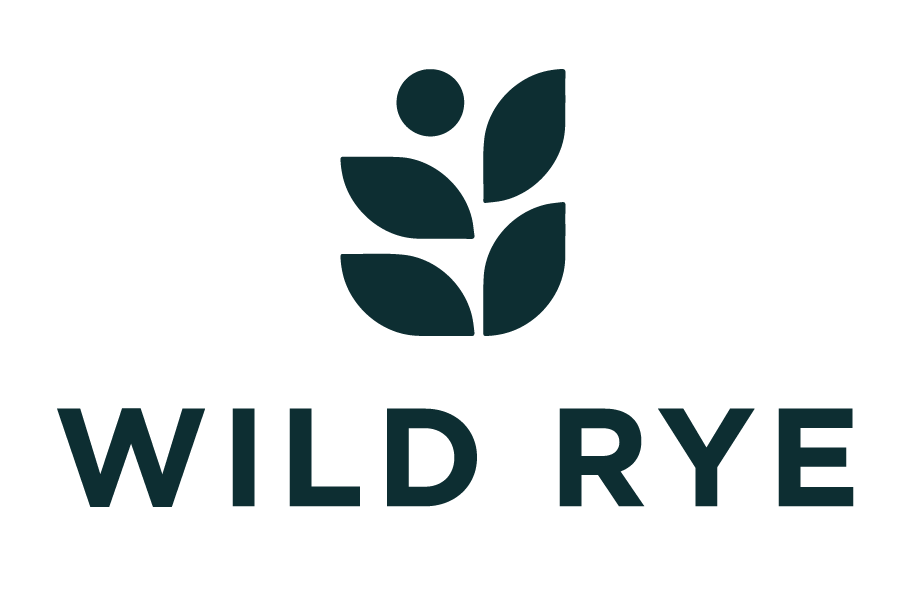

![[Saffron] Danner 3/4 Zip saffron yellow flatlay](http://wild-rye.com/cdn/shop/files/DANNER_SAFFRON.jpg?v=1764970727&width=2160)
![[Saffron] Danner 3/4 Zip Saffron yellow front crop view](http://wild-rye.com/cdn/shop/files/WILDRYE4908.jpg?v=1764970727&width=2048)
![[Shaded Spruce] Heyburn 3L Jacket in Shaded Spruce, flatlay](http://wild-rye.com/cdn/shop/files/WildRye_HeyburnJacket_Spruce_1.jpg?v=1766172700&width=2048)
![[Shaded Spruce] Heyburn 3L Jacket in shaded spruce, on model front crop view](http://wild-rye.com/cdn/shop/files/WILDRYE5928.jpg?v=1766172700&width=2048)
![[Amethyst] Heyburn 3l bibs in amethyst, flatlay](http://wild-rye.com/cdn/shop/files/WildRye_HeyburnBib_Amethyst_1.jpg?v=1766172717&width=2048)
![[Amethyst] Heyburn 3l bibs in amethyst, on model front full body view](http://wild-rye.com/cdn/shop/files/WILDRYE6799.jpg?v=1766172717&width=2048)
![[Olive You] Freyah Pant Olive flatlay](http://wild-rye.com/cdn/shop/files/FREYA_OLIVEYOU.jpg?v=1757356787&width=2160)
![[Olive You] Freyah Pant Olive front full body view](http://wild-rye.com/cdn/shop/files/WILDRYE3613.jpg?v=1757436391&width=1815)
![[Storm Contour] Bassett Half zip in storm purple with light purple floral pattern, flatlay](http://wild-rye.com/cdn/shop/files/BassettHalfZip_StormContour.jpg?v=1757965879&width=2160)
![[Storm Contour] Bassett Half zip in storm contour, on model front crop view](http://wild-rye.com/cdn/shop/files/WILDRYE4159.jpg?v=1757965879&width=2048)
![[Chestnut Storm] Brown baselayer legging with purple colorblocked stripe on each leg, flatlay](http://wild-rye.com/cdn/shop/files/BassettLegging_Chestnut.jpg?v=1757963384&width=2160)
![[Chestnut Storm] chestnut storm blocked baselayer legging, on model front crop view](http://wild-rye.com/cdn/shop/files/WILDRYE4041.jpg?v=1757963384&width=2048)
![[Shaded Spruce] Payette insulated pullover in shaded spruce, flatlay](http://wild-rye.com/cdn/shop/files/WildRye_PayettePullover_Spruce_1.jpg?v=1758837674&width=2048)
![[Shaded Spruce] Payette insulated pullover in shaded spruce, on model front crop view](http://wild-rye.com/cdn/shop/files/WILDRYE5759.jpg?v=1758838275&width=2048)
![[Iris] Payete Insulated Pant in Iris purple with floral contrast stitching, flatlay](http://wild-rye.com/cdn/shop/files/WildRye_PayettePant_Iris.jpg?v=1758840409&width=2048)
![[Iris] Payette Insulated Pant in Iris purple, on model front crop view](http://wild-rye.com/cdn/shop/files/WILDRYE5496.jpg?v=1758840409&width=2048)
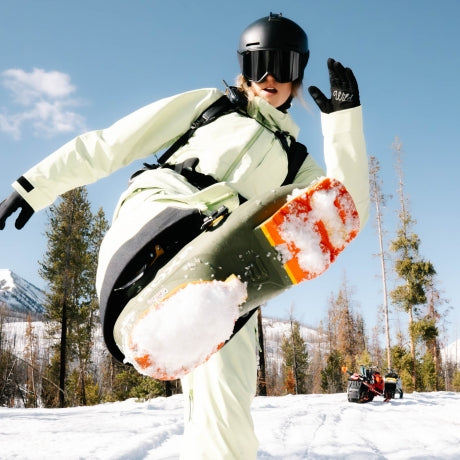
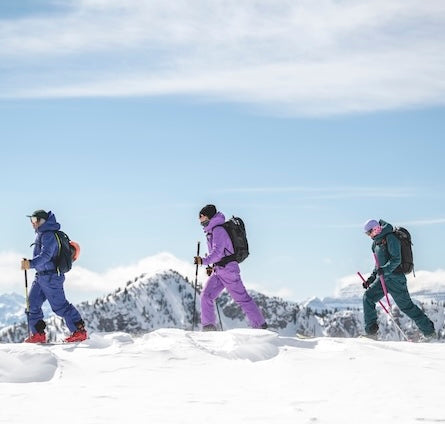
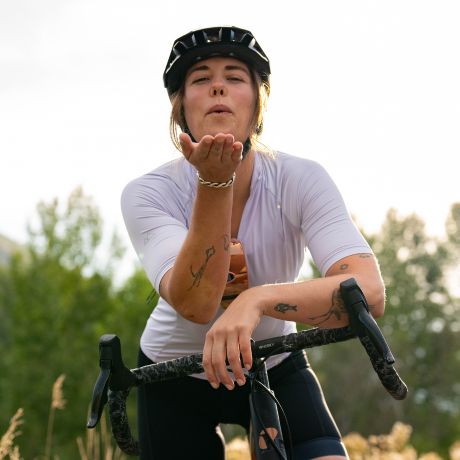
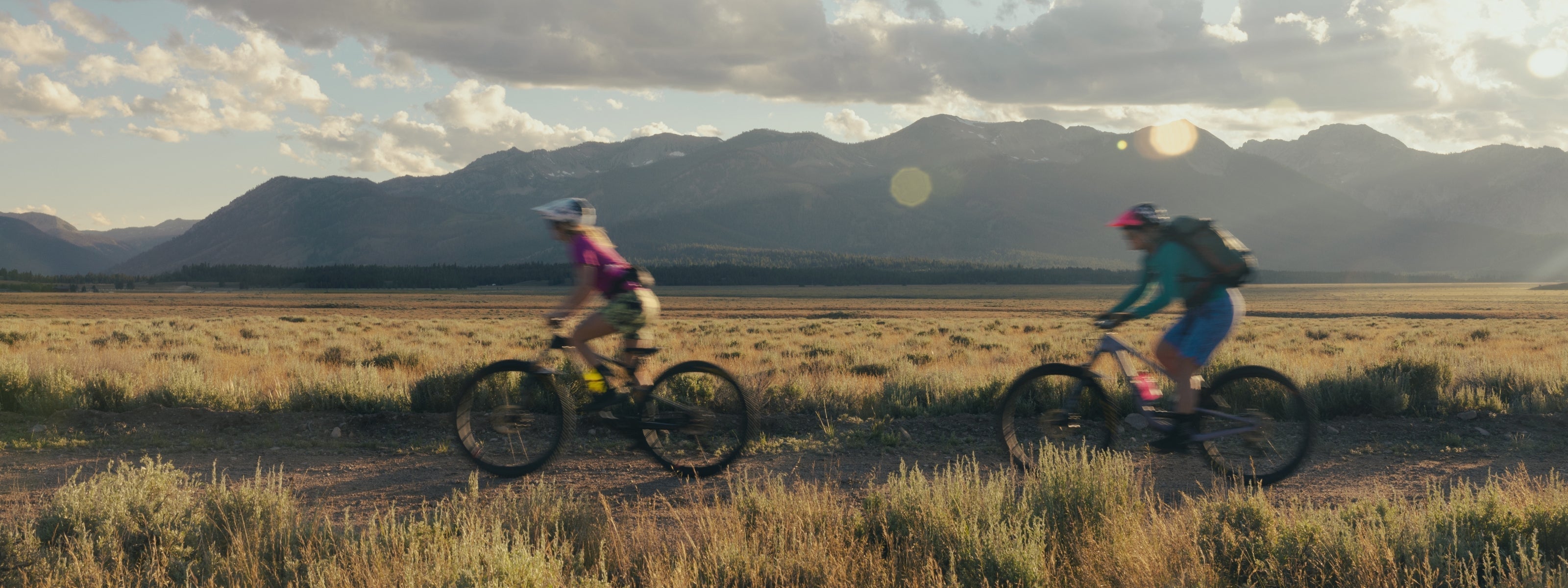
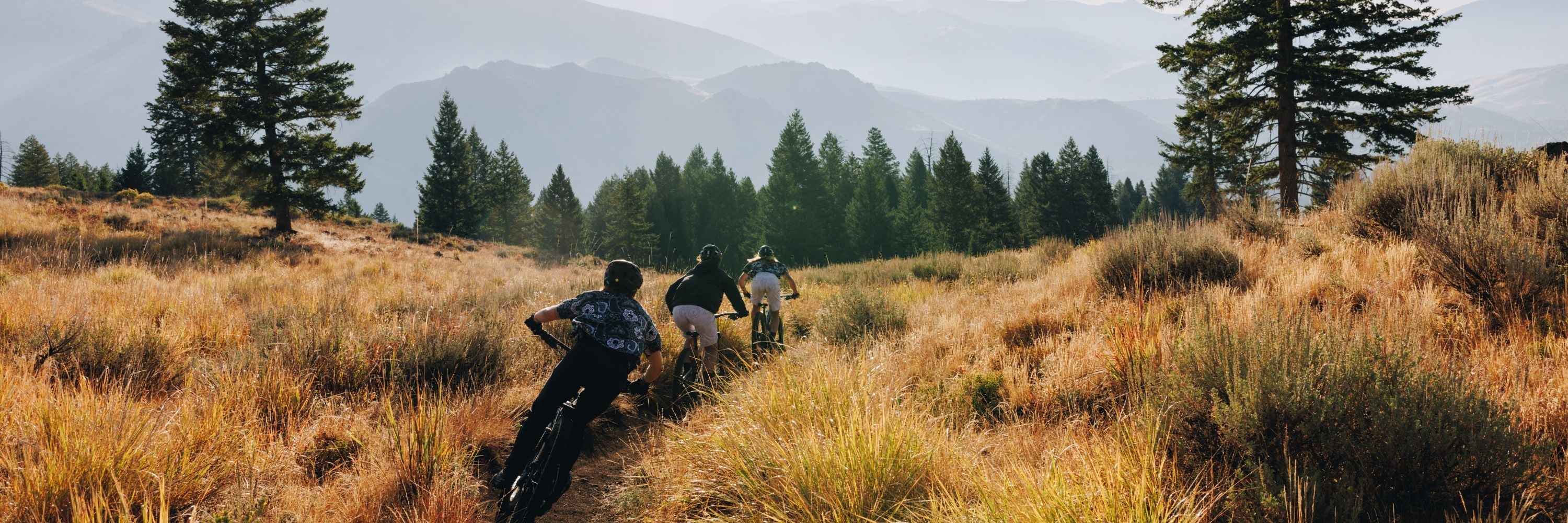
Leave a comment
This site is protected by hCaptcha and the hCaptcha Privacy Policy and Terms of Service apply.